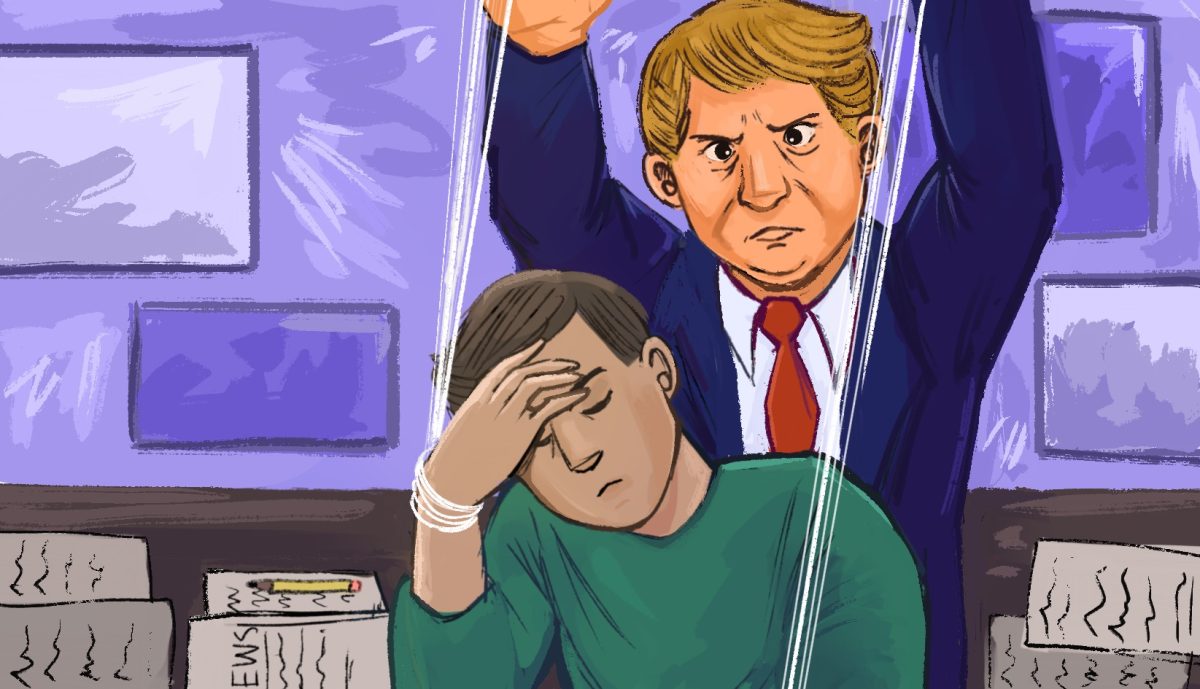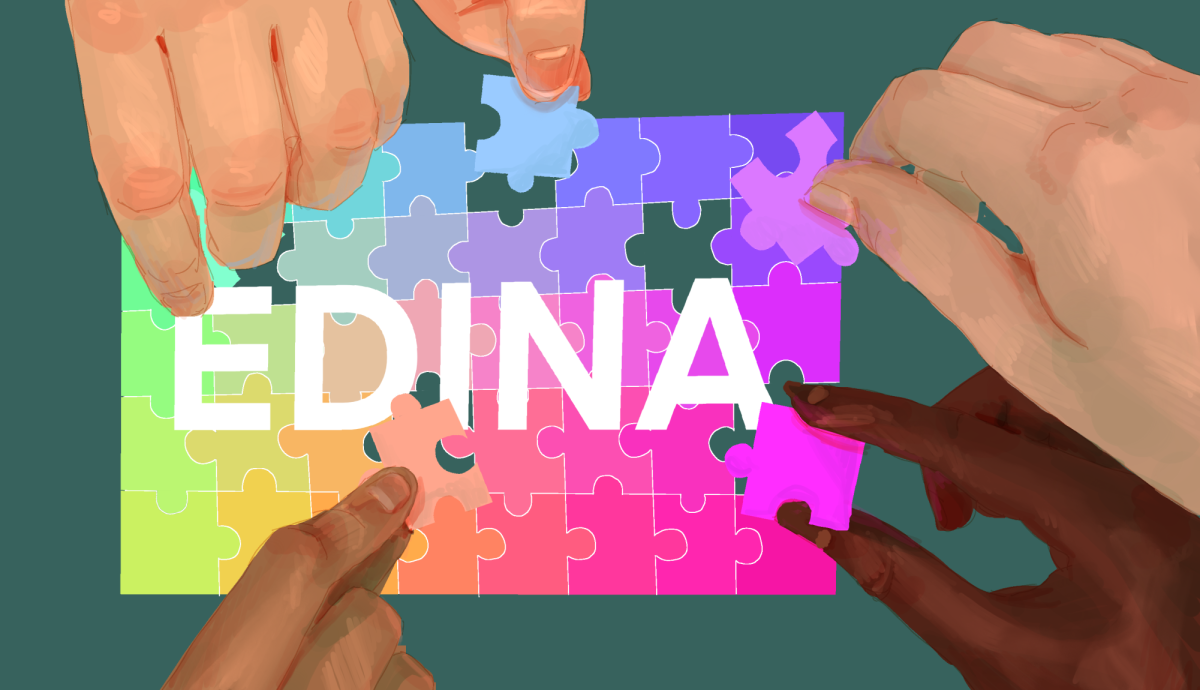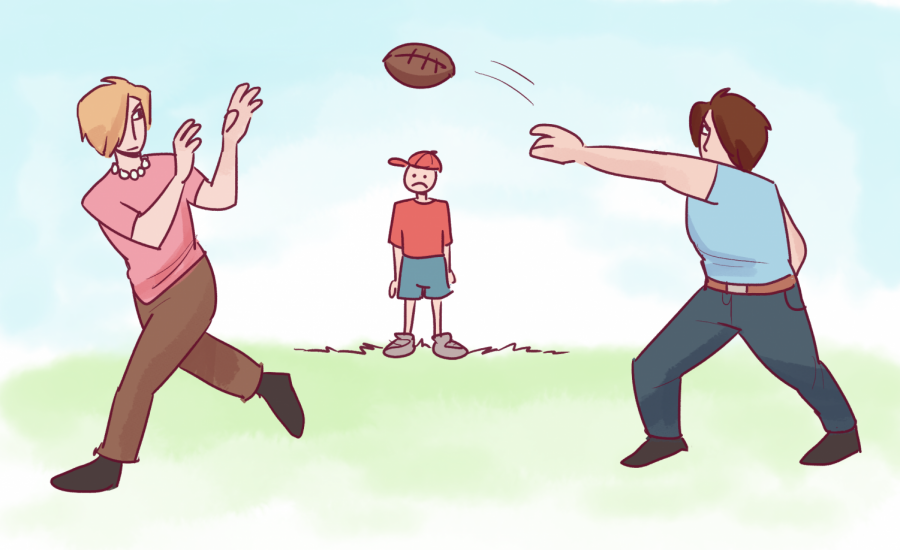Social media and smartphones have granted us infinite accessibility. Finding information on any imaginable topic only requires the click of a button; broadcasting your life is as easy as tapping a screen. In an era where anyone’s thoughts on anything can echo around the globe almost instantaneously, it’s easy to wonder: Does journalism need to exist anymore?
The Israel-Hamas war has answered that question with a definitive yes.
After Hamas’s attack on Israel on Oct. 7, social media platforms were immediately flooded with content that ranged in truthfulness. Influential figures began reposting images and videos to their Instagram stories, some of which were overtly inaccurate. For example, Justin Bieber shared an image of a demolished Palestinian neighborhood captioned “Pray for Israel.” In a similar vein, the Israeli government disseminated claims of babies being beheaded by Hamas, among other crimes that could not be verified. Tunisian journalist Muhammad al-Hachimi al-Hamidi posted an AI-generated image of Palestinian children smiling while covered in ash on X (formerly Twitter). al-Hachimi al-Hamidi didn’t acknowledge that the photo was AI generated. The image didn’t appear in any media outlets.
Misinformation can be — and usually is — more subtle than an inaccurate caption or a fake image. A lack of appropriate background information or even a careless word choice can convey false ideas. Journalists are responsible for impartial and accurate communication. In order to execute this, we have to consider the implications of language. What’s the impact of addressing the “Israel-Gaza war” instead of the “Israel-Hamas conflict?”
Within each article, podcast, social media post, or other communication, there is a difference in the usage of wording and numbers to identify the factors within the current crisis. Most contentiously, the U.S., Israel, and other countries label Hamas as a terrorist organization while other countries and publications have referred to it differently.
“Terrorism is a loaded word, which people use about an outfit they disapprove of morally. It’s simply not the BBC’s job to tell people who to support and who to condemn — who are the good guys and who are the bad guys,” wrote John Simpson for the BBC.
The difference between “attack,” “war,” and “conflict” might seem negligible at first glance, but a deeper look reveals how a simple shift in vocabulary changes the nature of a story.
Understanding context is crucial for journalists reporting on the war. Despite the often oversimplified messaging on social media, Hamas is not the same as Palestine. Palestine refers to the Palestinian territories of Gaza and the West Bank; Hamas formally recognizes itself as the Islamic Resistance Movement and one of Palestine’s political parties which governs the territories.
Many online sources neglected to explain the history of Israel, Hamas, and Palestine that preceded Hamas’s attack on Oct 7. A lack of context risks an increase in polarized thinking. Speaking up for what’s right is a positive thing, but when what’s right is decided based on minimal background knowledge, more harm than good is done.
At the end of the day, the primary role of the press is to serve the public. Failing to provide adequate history — or access to materials for further learning — is a disservice. Publications like Al Jazeera, which paired continuously updating coverage with detailed reporting on the history of the conflict, showcase the power of the press at its best by informing on current events while educating in a broader historical context.
Journalists serve a distinct role separate from any civilian, government official, or soldier. Designated the Fourth Estate, the goal of the press is to hold power to account and bring truth to light. As of Nov. 26, 57 journalists and media workers were confirmed dead in the Israel-Gaza War; 50 were Palestinian, four were Israeli, and three were Lebanese. No one should worry about being killed while doing their job. Journalists are no exception.
In Zephyrus, one of the first things we discuss as a publication at the dawn of each new school year is ethical responsibility. As journalists, we are responsible for balancing speed with accuracy. The Israel-Hamas war shows that following an ethical code is always significant, whether we’re reporting on a soccer game or breaking news.
Context matters. Consistency matters. Truth matters. Journalism matters, and so do the people behind it.
This piece was originally published in Zephyrus’ print edition on November 30, 2023.











Anonymous • Feb 15, 2024 at 8:55 pm
From @IDF on ? [Reply to @AvichayAdraee]:
Hey @AlJazeera, we thought your journalists were supposed to give unbiased reports on situations, not actively participate in creating them on the front lines as Hamas terrorists.
@AvichayAdraee’s post:
A laptop that belonged to Muhammad Washah, an @AlJazeera
journalist, was recovered by IDF in the northern Gaza Strip. It has pics proving he also serves as a senior Hamas military operative in the anti-tank missile array and in late 2022 he moved to work on R&D of aerial weapons for the organisation.
Intelligence analysis carried out on the computer includes photos linking subject to his Hamas activity.
Anonymous • Dec 14, 2023 at 9:31 am
Injured. Kidnapped. Videotaped and beheaded.
Who would do such terrible things?
Crying. Pleading. Begging for survival.
Terrorists would do these terrible things.
Men. Women. Children and the elderly.
Is this as controversial as Zephyrus says?
Spending Shabbat scared and Chanukah in captivity.
It doesn’t take a genius to classify Hamas correctly.
Hidden in tunnels. Bases. A maze underground.
What’s a loaded word?
Hoping against hope. Praying for protection.
An emotional exaggeration, which terrorism sure isn’t.
Henry L • Nov 30, 2023 at 7:16 pm
Wow… I can’t believe I just read this.
I think it’s pretty clear that Hamas is a terrorist group considering that they have kidnapped hundreds of innocent civilians and killed over a thousand.
I don’t believe that any context is needed to understand the October 7th massacre, and nothing will ever justify the taking of babies, parents, and even the elderly into tunnels deep underground, miles from their homes.
One video I had the misfortune of viewing about a month ago continues to haunt me. In it, a young woman, visibly injured, was laying on a bed while crying and begging to be freed. Then, shortly after, Hamas announced that they would be killing one hostage for every retaliatory strike fired by Israel. The fact that Hamas’s classification as a terrorist group is a controversial issue (according to Zephyrus) is enraging and makes me lose faith in humanity.
I should also note that Al Jazeera is owned by the Qatari government and has been involved in several controversies. In one video, a reporter claimed that the number of Jews murdered in the Holocaust was “exaggerated and adopted by the Zionist movement” and that Israel was the “biggest winner” from the genocide. They also held a live birthday party for a convicted terrorist and tweeted an antisemitic meme, which they called a “mistake”.
johnson • Mar 1, 2024 at 7:54 am
atta boy henry